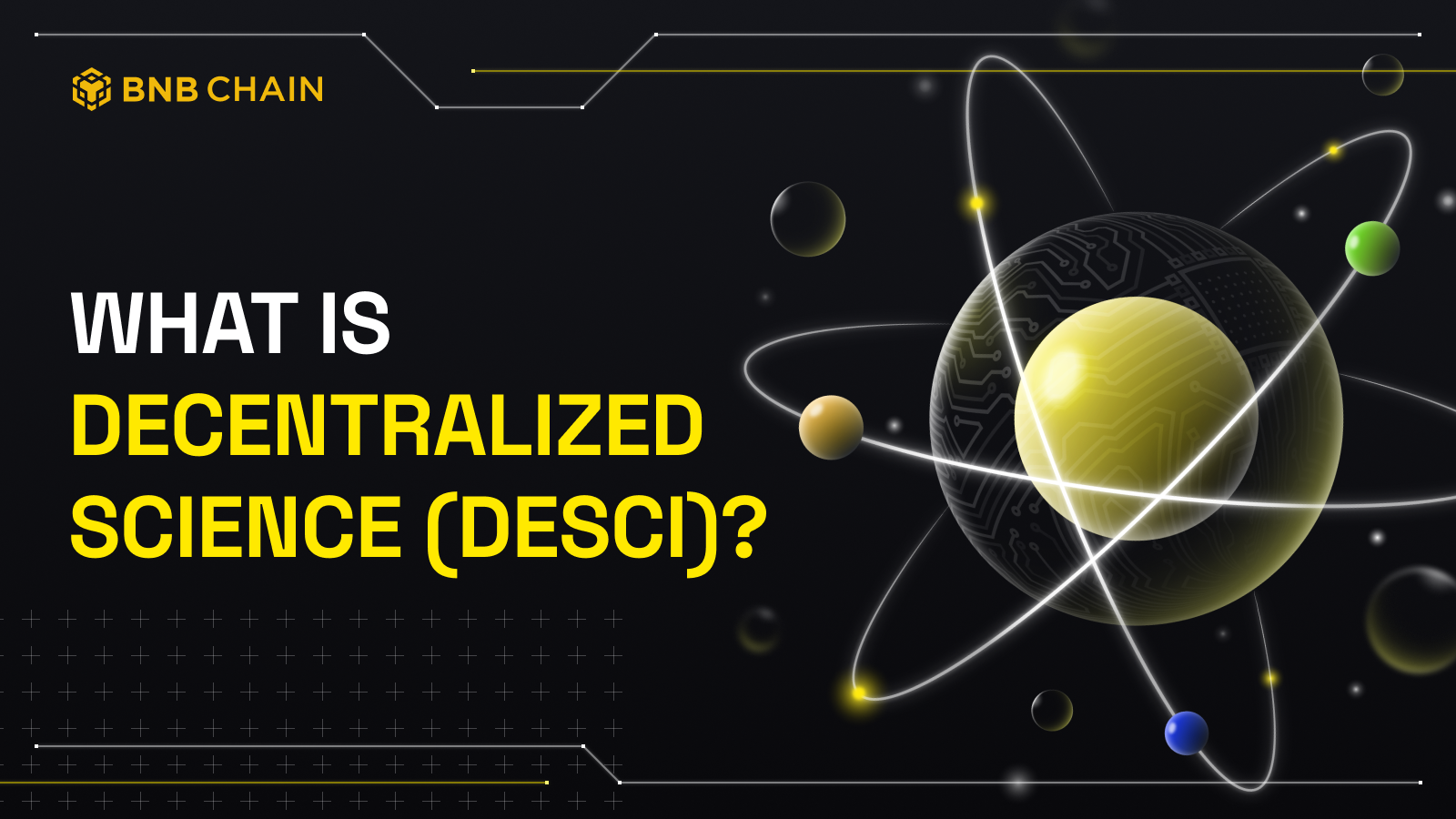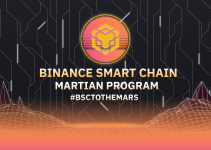Table of Contents

Decentralized Science (DeSci) leverages blockchain to decentralize research, promoting transparency, collaboration, and open access, addressing TradSci’s centralization and innovation challenges.
Traditional science, also called TradSci, is the meticulous search for knowledge performed through theory, experimentation, and observation. However, there is one problem with TradSci. It is highly centralized, with major institutions and publishers having a stranglehold over research. While one may argue in favor of such an approach, it has several problems leading to a lack of innovation and funding drying up.
DeSci addresses these issues by leveraging blockchain technology to create a more open and community-driven approach to scientific research. This article will examine DeSci, its use cases, and how it can help enhance existing scientific practices.
The Problems Plaguing Traditional Science (TradSci)
One of the primary problems in TradSci, frequently cited by experts, is the “valley of death.” This issue arises in research and innovation, specifically in the period between fundamental scientific research and the development of practical applications or innovations that benefit patients and other stakeholders. For instance, a groundbreaking discovery in medical research may struggle to secure the necessary funding and support to move from the lab to clinical trials, causing potential life-saving treatments to be delayed or abandoned.
Additionally, traditional science is highly centralized, with control over research concentrated among a few institutions. This centralization hampers research and breakthroughs and also creates a biased publishing process. For example, prestigious journals often prioritize research from well-known institutions, leaving independent or less-established researchers struggling to get published, regardless of the quality of their work. Such delays and biases mean it could take years for valuable studies to reach the public if they do at all.
Paywalls also create barriers for independent researchers and the general public, hindering cooperation and reducing the potential influence of scientific discoveries and advancements. DeSci aims to address these issues, focusing on funding, research, publishing, and data sharing.
What Is Decentralized Science (DeSci)?
DeSci is a novel approach to scientific research that leverages blockchain technology to revolutionize the approach to science as we know it. It represents a paradigm shift in scientific research and focuses on four key principles: transparency, decentralization, incentives, and cooperation. By implementing a higher level of decentralization, DeSci reduces the reliance on centralized institutions and intermediaries for knowledge creation and distribution.
It aims to significantly increase access to scientific data, promote transparency in peer review processes, and incentivize research collaboration. Through blockchain technology, DeSci ensures the integrity of scientific records while significantly reducing barriers to entry. DeSci’s focus on decentralization ensures the democratization of access to resources and research material while reducing gatekeepers’ power. Its strong emphasis on transparency helps foster openness and an environment of accountability, making research more trustworthy.
Through greater collaboration, DeSci helps promote diverse viewpoints and sharing of expertise by removing institutional and geographical limitations.
How Does DeSci Work?
DeSci leverages blockchain technology for secure storage, decentralized autonomous organizations (DAOs) for decision-making, and tokenization to incentivize research contributions and control intellectual property. Blockchain technology ensures secure data storage that cannot be changed once stored. Meanwhile, DAOs enable transparent and decentralized financial allocations and project governance, allowing stakeholders to manage resources and make decisions without depending on intermediaries or centralized institutions.
Intellectual property NFTs (IP-NFTs) play a crucial role in DeSci, enabling involvement and allowing researchers to claim ownership of research results. Researchers can use IP-NFTs to tokenize papers, research, data sets, and patents on the blockchain, while tokens can be used to align incentives within the larger decentralized research community. The use of IP-NFTs also allows academics to award themselves ownership rights. These ownership rights can then be exchanged or licensed on blockchain platforms, encouraging innovation and information sharing within the larger DeSci ecosystem.
Use Cases Of Decentralized Science
DeSci has several potential use cases that are closely linked to its ability to foster innovation, teamwork, and the democratization of access to scientific knowledge.
Research Funding
Smart contracts can promote various decentralized funding mechanisms and transparency in allocating research funds. DeSci can leverage decentralized networks, crowdfunding research projects, and reward contributors.
Collaboration And Data Sharing
DeSci platforms can facilitate the secure and transparent sharing of research data, helping researchers tokenize and monetize their data while also ensuring and safeguarding ownership rights.
Peer Review
Blockchain-based reputation systems could significantly enhance the credibility and trustworthiness of scientific publications. DeSci could also help create immutable records of researchers’ contributions and peer review activities, promoting transparency and accountability.
Academic Publishing
DeSci platforms can also serve as decentralized repositories for academic publications. Researchers could publish their work directly on these repositories, allowing broader access to their work.
What Are The Benefits Of DeSci?
DeSci has several benefits. It lowers entry barriers, fostering inclusivity and allowing scientists from different backgrounds to participate and contribute to projects. It also facilitates open access to data, fostering greater trust and openness. DeSci also promotes greater cooperation by allowing researchers to collaborate in a decentralized manner, speeding up innovation and problem-solving. The use of innovative systems such as tokens and DAOs ensures equitable pay for researchers, fostering greater involvement.
Using IP-NFTs gives researchers complete control over their intellectual property, allowing them to monetize their work. DeSci could also remove paywalls, further democratizing access to research data.
TradSci vs Desci
DeSci and TradSci play key roles in advancing scientific knowledge. However, they differ in several key aspects. Let’s look at some significant differences.
Collaboration And Innovation
Traditional science is siloed, with scientific practices isolated by institutional framework. DeSci addresses this by fostering collaboration and allowing researchers to leverage blockchain technology to interact and share resources.
Incentives and Funding
Traditional science relies on grants and institutional funding, leading to inefficiencies in research. DeSci addresses this by leveraging decentralized funding mechanisms to incentivize and reward researchers based on the quality of their work.
Transparency
Traditional science is overly reliant on centralized institutions to validate research findings, which is typically done in an opaque manner. DeSci promotes greater transparency and trust by leveraging blockchain technology, ensuring the immutability and integrity of scientific data.
Greater Accessibility
DeSci democratizes access to scientific data and knowledge by leveraging blockchain technology to promote open access to scientific publications and data. In comparison, traditional science uses subscription models to access research papers and publications. This creates access barriers and limits the reach of research findings.
BNB Chain and DeSci
BNB Chain recognizes the importance and potential of DeSci, which is why it has been a prominent track in our recent hackathons. The focus is on leveraging DeSci to open access to scientific data and publications, implement crowdsourced peer-review, facilitate decentralized research funding, and introduce NFT-based scientific data ownership. The aim is to enhance transparency, improve funding mechanisms, and foster collaboration and public engagement within the scientific ecosystem.
One BNB and DeSci
One BNB offers a powerful infrastructure for DeSci by integrating key elements of the BNB Chain ecosystem to address the challenges faced by traditional science.
- BNB Smart Chain: BSC’s high-performance blockchain supports decentralized research funding, peer review, and data sharing in DeSci, providing a robust infrastructure for managing research transactions like funding and intellectual property.
- opBNB: Provides an optimized layer for processing large volumes of scientific data and facilitating more efficient research collaboration across decentralized networks.
- BNB Greenfield: BNB Greenfield’s focus on secure, on-chain data storage is crucial for DeSci. It allows researchers to securely store and share large datasets, research findings, and other critical scientific information. This component ensures that all research-related data—from experimental results to peer-reviewed publications—can be permanently and transparently stored, enhancing the reliability and accessibility of scientific records.
In Closing
DeSci has the potential to change the current scientific landscape by addressing the problems faced by traditional science. By leveraging blockchain technology, it fosters greater collaboration and democratizes access to knowledge, driving innovation across diverse research fields.


